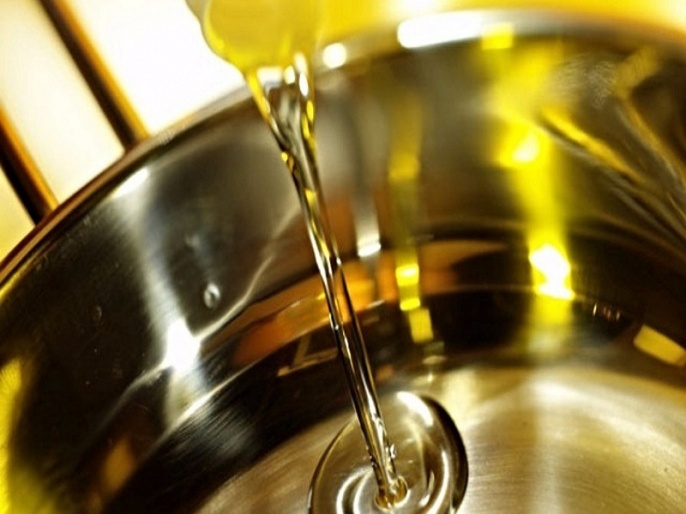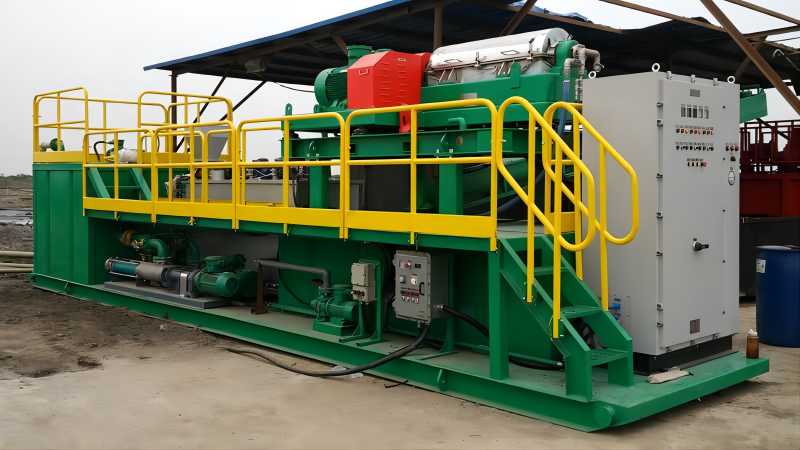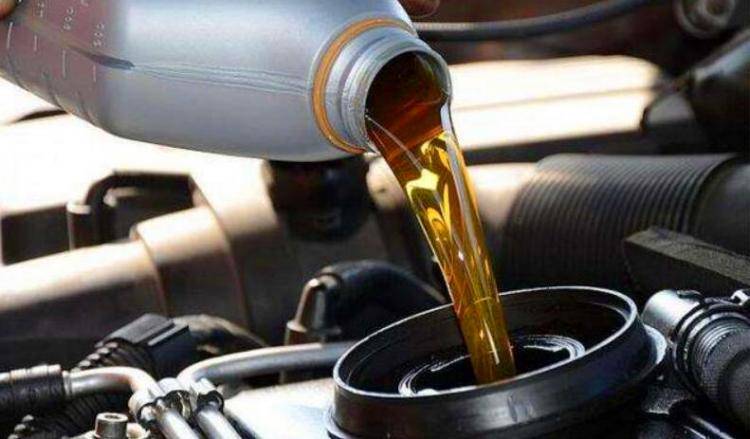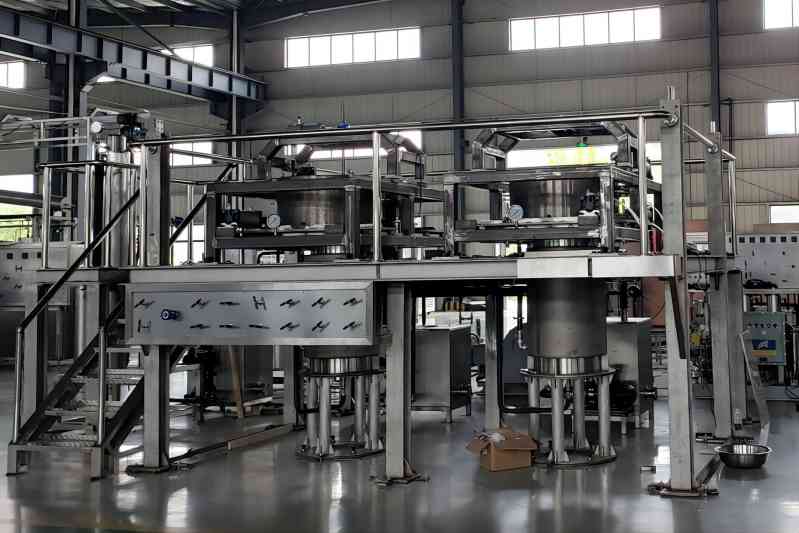Waste Oil Recycling: Protecting the Environment and Creating Value
Waste oil recycling refers to the process of collecting and processing used cooking oil and industrial oils into reusable resources. It plays a crucial role in both environmental protection and economic value creation. This article will delve into the significance of waste oil recycling, the different types of services available, methods of collection and disposal, and factors affecting collection pricing.

The Importance of Waste Oil Recycling
Neglecting proper disposal of waste oil poses a major environmental hazard. Disposing of used oil improperly, such as pouring it down drains or onto land, can lead to a series of detrimental consequences.
Drainage Contamination: When waste oil enters drains, it can solidify and clog the pipes, causing disruptions in sewage systems and potentially leading to overflows. This can expose individuals and the environment to harmful contaminants.
Water Pollution: Oil that reaches water bodies, like rivers and lakes, can spread rapidly due to its low solubility in water. This oil film disrupts the natural ecosystem, hindering oxygen exchange and negatively impacting aquatic life. Additionally, oil can contaminate drinking water sources, posing a serious health risk.
Soil Contamination: Direct disposal of waste oil onto land poses a significant threat to soil health and groundwater quality. Oil can coat soil particles, hindering water infiltration and impacting the ability of plants to absorb nutrients and water. Furthermore, oil can seep into the ground, contaminating groundwater sources used for drinking water and irrigation.
Waste oil recycling offers a crucial solution to mitigate these detrimental effects. This process involves collecting and processing used oil to create valuable products like biodiesel, lubricants, and fuel oil. By diverting used oil from improper disposal practices, recycling:
- Reduces the risk of environmental contamination: By preventing oil from entering drainage systems, waterways, and soil, recycling protects the environment from harmful pollutants.
- Promotes resource conservation: Recycling used oil into new products reduces the need to extract virgin oil, conserving natural resources and minimizing environmental impact.
- Encourages sustainability: By utilizing a closed-loop system for used oil, recycling promotes sustainable practices and resource management.
Therefore, it is imperative to acknowledge the significant importance of responsible waste oil disposal through proper recycling methods. This practice not only safeguards the environment but also promotes resource sustainability and contributes to a healthier planet.
Types of Waste Oil Disposal Services
The waste oil disposal industry provides a comprehensive service structure to handle used oil safely and efficiently. Let’s delve deeper into the specific types of services offered:
1. Waste Oil Collection
This service focuses on the initial stage of the disposal process, which involves the gathering of used oil. Specialized companies employ trained personnel and appropriate equipment to collect the oil directly from its origin point. This can include:
- Restaurant Used Oil Collection: Restaurants generate significant volumes of used cooking oil during their operations. These companies collect used cooking oil from restaurants on a regular schedule, ensuring proper handling and preventing improper disposal.
- Household Used Oil Collection: Individuals who change their own motor oil or perform other oil-related maintenance at home can utilize this service. Collection companies provide designated locations or pick-up options for residents to safely dispose of their used oil.
- Industrial and Commercial Used Oil Collection: Businesses and industries that utilize various types of oil in their operations, such as manufacturing facilities or transportation companies, can benefit from this service. Collection companies offer solutions tailored to the specific needs and volumes of these entities.

2. Waste Oil Transportation
Once collected, the used oil requires transportation to dedicated processing facilities where it undergoes further treatment. This service ensures the safe and compliant movement of the collected oil, minimizing potential risks associated with transportation.
- Specialized Transport Vehicles: Waste oil transportation companies utilize specially designed and equipped vehicles to handle the oil safely and securely. These vehicles comply with specific safety regulations and are equipped to prevent spills or leaks during transport.
- Adherence to Regulations: The transportation of waste oil is subject to specific regulations and guidelines established by environmental protection agencies. These companies ensure strict adherence to these regulations throughout the transportation process, guaranteeing the safe and legal movement of the oil.
3. Waste Oil Treatment
The final stage involves the processing of the collected oil at specialized facilities. These facilities utilize various technologies and equipment to transform the used oil into usable products.
- Processing Technologies: Depending on the type and condition of the used oil, various processing techniques may be employed. These can include physical separation methods to remove impurities, chemical treatments to eliminate contaminants and biological treatment methods that utilize microorganisms to convert the oil into usable products like biodiesel.
- Product Generation: The processed oil is ultimately transformed into valuable products such as biodiesel, which can be used as a renewable fuel source, lubricants for machinery, or fuel oil for various applications.
By understanding the distinct service offerings within the waste oil disposal industry, individuals and businesses can choose the most appropriate solution for their specific needs, ensuring safe and responsible disposal of used oil while contributing to environmental sustainability.
Methods of Waste Oil Collection and Disposal
Waste oil collection and disposal involve a range of techniques, ensuring efficient and responsible handling of used oil. Let’s explore the specific approaches employed in each stage of the process:
1. Methods of Waste Oil Collection
On-Site Collection: This method involves professional waste oil disposal companies scheduling regular pickups at customer locations, such as restaurants, households, or businesses. Trained personnel arrive with specialized equipment to safely collect the used oil, ensuring proper handling and preventing improper disposal on the premises. This method is particularly beneficial for entities generating large volumes of used oil or lacking convenient access to centralized collection points.
Centralized Collection Points: This method establishes designated drop-off points within communities or neighborhoods. Residents can conveniently transport their used oil to these locations and deposit it in designated containers. This method offers increased accessibility for individuals, encouraging responsible disposal by providing a readily available option for discarding used oil. However, it is crucial to ensure these collection points are well-maintained and monitored to prevent overflowing or improper use.
2. Methods of Waste Oil Disposal
Physical Treatment: This primary method employs various physical processes to remove contaminants and impurities from the used oil. Common techniques include:
- Sedimentation: This process allows heavier impurities to settle out of the oil due to gravity, separating them from the lighter oil components.
- Filtration: The oil is passed through filters with specific pore sizes, trapping solid contaminants while allowing the cleaner oil to pass through.
- Centrifugation: This method utilizes high-speed rotation to separate heavier contaminants from the oil based on their differing densities.
Chemical Treatment: In specific cases, chemical agents may be employed to target and eliminate specific pollutants present in the waste oil. This approach requires careful selection and handling of chemicals to ensure their effectiveness and safety while complying with environmental regulations.
Biological Treatment: This method utilizes microorganisms, such as bacteria, to break down and convert the waste oil into usable products. This process typically requires specific conditions and controlled environments for optimal efficiency. While still under development and not as widely used as other methods, biological treatment holds promise as a sustainable and environmentally friendly option for waste oil disposal.
By implementing these diverse methods, the waste oil disposal industry strives to effectively collect and process used oil, minimizing environmental impact and transforming it into valuable resources.

Factors Affecting Waste Oil Collection Prices
The pricing of waste oil collection services is influenced by several key factors, which directly impact the cost of handling and processing used oil. Understanding these factors can help individuals and businesses make informed decisions when choosing a waste oil disposal service provider.
1. Type of Waste Oil
Different types of used oil possess varying market values and require distinct processing methods, leading to differences in collection costs. Here’s a breakdown of the impact:
- Used Motor Oil: Generally, used motor oil holds a higher value compared to other types due to its potential for re-refining into high-quality lubricating oil. This can translate to lower collection costs for the provider or potentially even a small fee paid to the customer for the oil.
- Used Cooking Oil: While used cooking oil has the potential for conversion into biodiesel, its processing typically requires additional steps to remove impurities like food particles and water. This can lead to higher collection costs compared to used motor oil, potentially translating to a fee charged to the customer for disposal.
- Other Used Oils: Other types of used oils, such as hydraulic fluid or industrial lubricants, may have varying values and processing requirements depending on their specific composition. These factors would influence the associated collection costs.
2. Quality of Waste Oil
The overall condition of the used oil significantly affects its recycling value and collection pricing. Here are some key aspects:
- Water Content: High water content in the oil increases processing costs due to the need for additional separation steps. This can lead to higher collection costs or potentially even a refusal to collect oil exceeding a specific water content limit.
- Presence of Impurities: The presence of contaminants like dirt, metal particles, or other foreign substances necessitates additional processing steps for removal. This can increase collection costs and potentially result in a surcharge for heavily contaminated oil.
- Overall Condition: The general condition of the oil, including its viscosity and acidity level, can also influence its recycling value and processing costs. Degraded or highly acidic oil may require more extensive processing, impacting the collection cost.
3. Volume of Waste Oil
The quantity of collected oil plays a role in determining the per-unit collection cost. Here’s the general trend:
- Larger Volumes: When dealing with larger quantities of used oil, the per-unit collection cost for the provider typically decreases due to economies of scale. This can potentially lead to lower collection costs or even fee reductions for the customer.
- Smaller Volumes: Collecting smaller quantities of used oil can be less cost-effective for the provider due to increased transportation and handling costs per unit. This may result in higher per-unit collection costs for the customer.
By considering these key factors affecting waste oil collection prices, individuals and businesses can make informed decisions. Understanding the value and condition of their used oil, along with the typical collection practices in their area, allows them to choose a service provider that offers the most cost-effective and responsible solution for their specific needs.

Conclusion
Waste oil recycling offers a valuable solution for protecting the environment and promoting resource conservation. By selecting reliable service providers and responsibly managing used oil, individuals, and businesses can work together to achieve a more sustainable future.
References:
https://www.autozone.com/diy/motor-oil/how-to-recycle-motor-oil
https://www.safety-kleen.com/services/oil-collection







